Status: Tennis champion, coach, author. His fourth book “Tennis: Winning The Mental Match” is available at TennisWarehouse.com and AllenFoxTennis.net.
Born in: 1939 In: Chicago, IL
First Tennis Memory: “Hitting against the backboard in Tucson (age 13).”
Greatest Sports Moment: “Winning the Pacific Southwest in Los Angeles in 1966, beating Roy Emerson in the final, in front of my hometown people.”
Most Painful Moment: “Losing in the finals of the Intercollegiate division at Ojai to Larry Nagler my teammate at UCLA. I had won it the year before and this loss solidified my drop in position on the UCLA team from #1 to #2.”
Last Book Read: “Plutarch, the Greek historian, on the lives of notables of Greece and Rome.”
Favorite Movie: “The Godfather.”
Musical Tastes: “Country western.”
First Job: “Assistant to the president at an investment banking firm, Kleiner-Bell, in Beverly Hills, CA (age 29). Started at the top and worked my way down.”
First Car: “1950 Ford (black).”
Current Car: “A Lexus 430 SC (silver).”
Favorite Tournament: “Well, I haven’t played a tournament in 30 years. But I’ll say the Pacific Southwest in Los Angeles, 1966. In it I beat the holders of all four of that year’s Slam tournaments – Roche, Santana, Stolle, and Emerson.”
Favorite Players To Watch: “In the past, Ken Rosewall, Manuel Santana, and Chuck McKinley. And Whitney Reed. Today, Murray, Federer.”
Strangest Match: “Maybe the finals of the Masters tournament in St. Petersburg, FL on the old Caribbean circuit. Played Niki Pilic. I’d win the first set, lose the second 6-0 or 6-1, win the third, lose the fourth 6-0 or 6-1, then win the fifth. It was hot and I was very tired so I was tanking sets to conserve energy.”
Childhood Dream: “A scientist. I was gonna be an astronaut. I was a physics undergrad – that was a carryover of my dream to be an astronaut. I found out I wasn’t very good at physics.”
Closest Tennis Friends: “Larry Nagler, Richard Mosk, Herb Fitzgibbon, Charlie Pasarell, Donald Dell, Norman Perry. Most of my good friends are tennis players.”
Funniest Players Encountered: “Jack Frost. Brilliant guy, Satnford grad. Top 10 in the country. Very smart. PHD in history. Just funny. Charlie Pasarell is also a very funny guy, as is Ray Moore.”
Toughest Competitors Encountered: “Cliff Richey. Connors maybe. He was no fiercer than Richey though. Fierce competitors were very common in my day. There weren’t many guys that didn’t go 100% the whole time.”
Embarrassing Tennis Memory: “I wasn’t embarrassed to lose or to play in front of crowds. Maybe losing to Whitney Reed in the semifinals of NCAAs 1960. He was jerking me around the court, hitting drop shots, and I felt a little silly chasing up and back after them.”
Childhood Heroes: “Kramer, Schroeder, Budge, Tilden, Trabert and Seixas. Great gentlemen and great players.”
Best You Ever Felt On Court, Where You Really Felt The Joy Of Tennis: “The finals of the Pacific Southwest. On the court, But I didn’t feel the joy of it because I wanted to win so much. And Emerson was too dangerous a player to relax against and enjoy the match. I just wanted to beat people. To me, matches were only fun against good players when I was sure I was going to win. And against top players who were always dangerous, it was never fun because I wanted to win so much. If I did it all over again, I’d try to enjoy the matches more.”
“The most enjoyable match maybe was when I played on center court at Forest Hills, opening day, when I was the featured player. I was playing a fellow I knew I could beat, in front of 10,000. I was relaxed and enjoying it. Another fun situation was playing two Davis Cup singles matches in Teheran in 1963 against two Iranian guys who were good, but not good enough to possibly beat me. My game was very consistent and if somebody was a slight level below me, I could beat him every time.”
Hobbies/Interests: “Flying. I fly an airplane, I’m a pilot. Traveling. But I have less hobbies now than I used to.”
Last Vacation: “In Greece.”
People Qualities Most Admired: “Loyalty would probably be at the top of the list. Selflessness. Consideration. Honesty.”
On His New Book, ‘Tennis: Winning The Mental Match’: “Ten years of work went into it. I’ve done a lot of mental consulting. Players of all levels, from pros to beginners, have the same problems – choking, loss of concentration, stress, pressure, and wanting to win but not being sure they can. It’s all crystalized into a book. I’ve written other tennis books on the mental game, ‘If I’m The Better Player Why Can’t I Win?’ and “Think to Win.†But this is a more coherent and complete book on the mental game.”
Inspiration For This New Book: “I had something to say. It’s not to make money. You don’t make money in tennis books, well, at least I don’t. This is just something I had to say. To get it all written down. This book will be a useful tool for players and it will last for a long time because the human mind will stay the same, regardless of changes in game style or strokes.”
Jose Higueras, Jay Berger, Brad Gilbert and Tracy Austin all endorsed it on the cover. Those are really strong people, and they wouldn’t do it if they did not think the book was. Let me qualify that statement. Brad Gilbert probably would because I coached him at Pepperdine, and he is the epitome of loyalty. The older you get the more you realize how important loyalty is.”
No tags

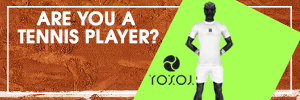

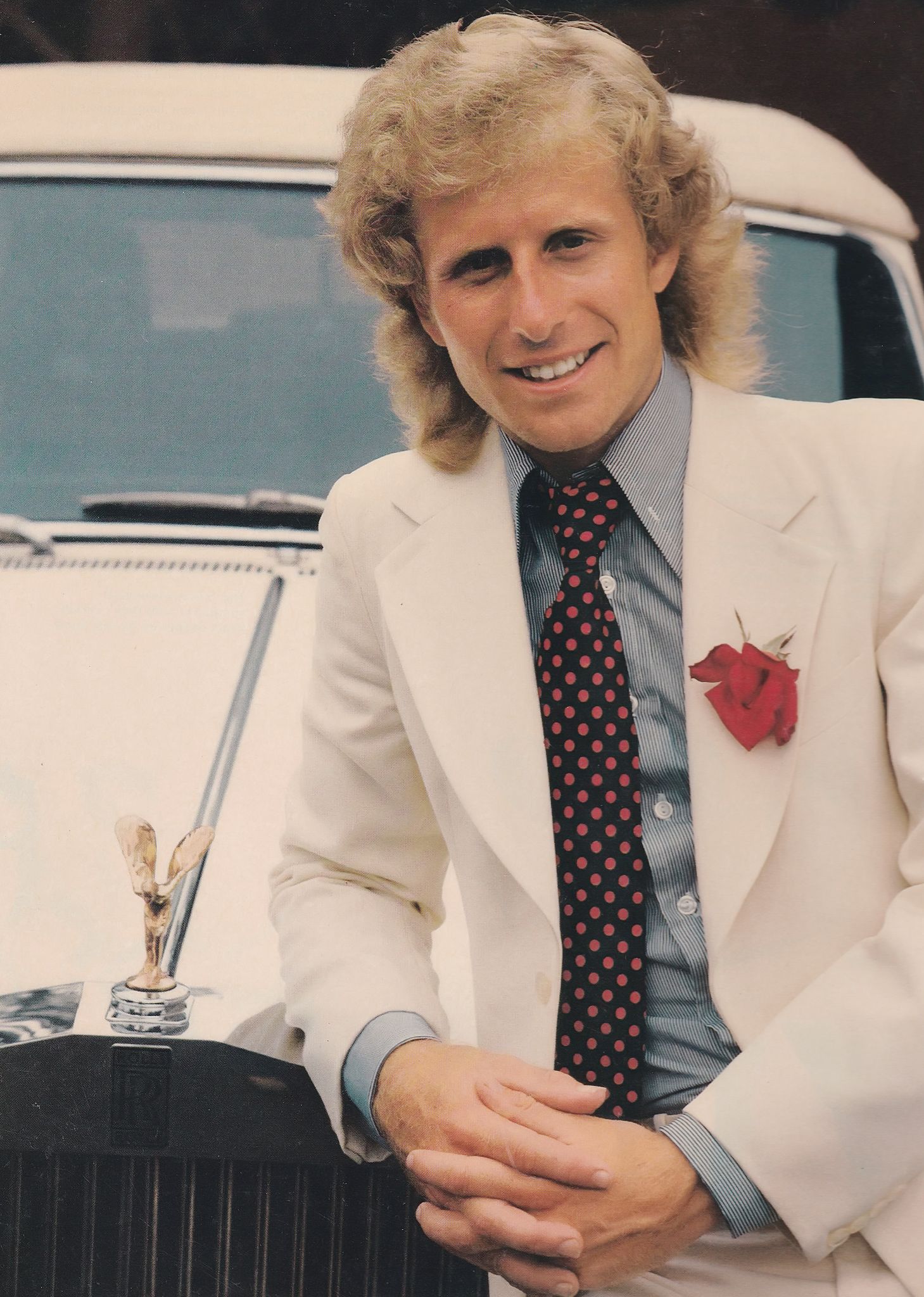
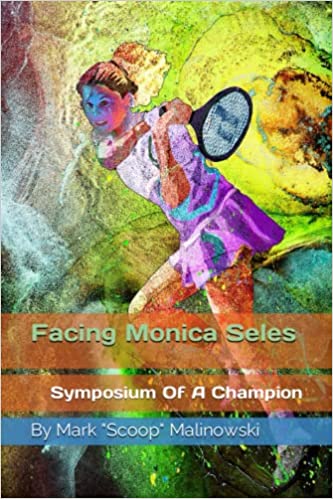
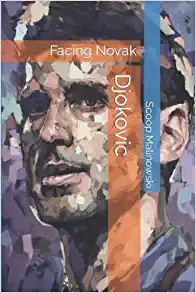
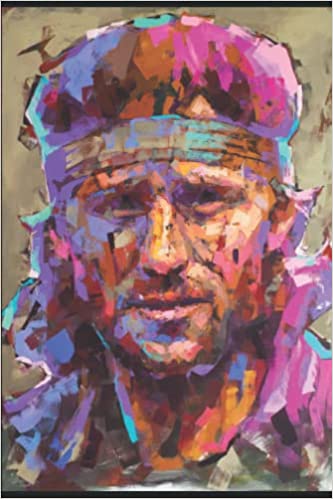
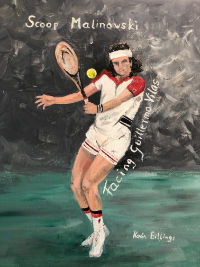
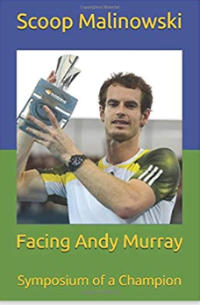
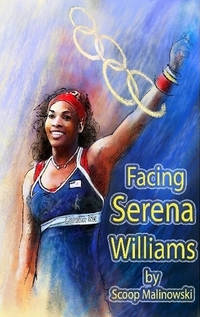
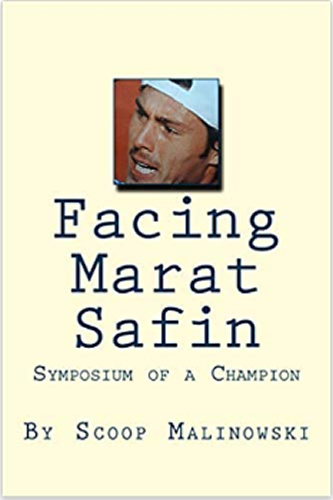
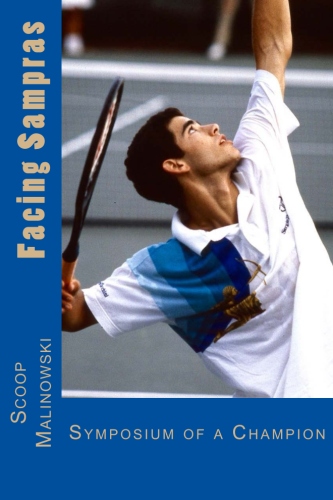
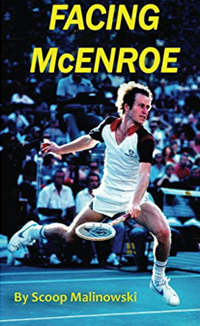
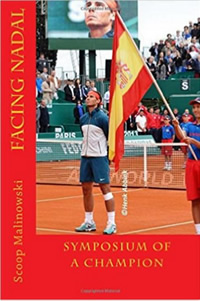
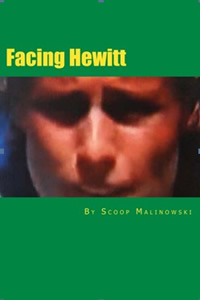
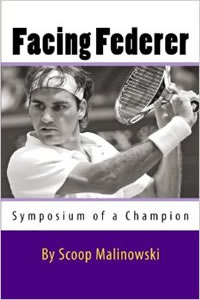
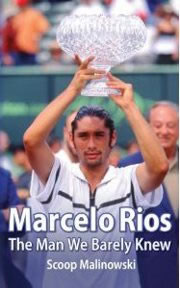
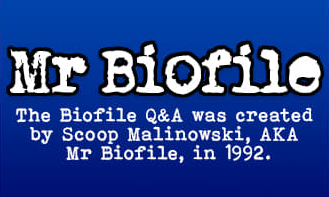
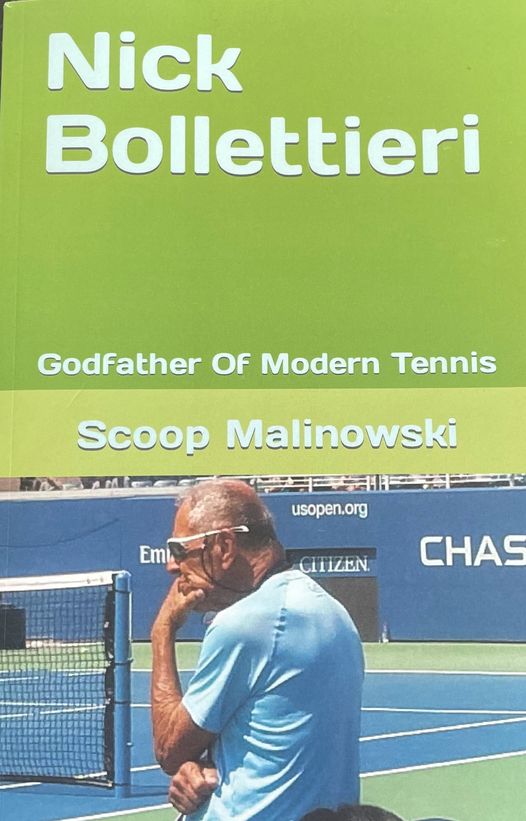


dan markowitz · January 4, 2011 at 4:28 pm
Good Bio, Scoop. I have a couple of observations on Dr. Fox’s comments. Firstly, loyalty is important, but not if someone is blindly loyal and second, this dude is really into winning. Almost very comment is about winning, he only felt good when he knew he was going to win a match and relax.
That’s part of the reason why I hate tennis, the competition side. It seemed a lot of players had similar feelings about competing and because of it, matches either turn into push-athons or nasty grudge matches based on dicey lines calls. Here’s a world-ranked player and the tension was still so intense for him that he didn’t enjoy playing. My experience with basketball players, of the Jordan, Barkley ilk, is that they knew they were good, they wanted the competition, thrived on it, and they enjoyed playing.
Richard Pagliaro · January 5, 2011 at 3:31 am
It’s a good point though obviously in basketball you have teammates to help you out so even for the stars it’s a more cooperative effort.
Years ago, I did a long interview with McEnroe. He happened to be in a very good and talkative mood so I was really trying to get at the root of his pathos/anger/stress issues. He was explaining it in various ways (“It’s like being a cigarette smoker…” etc.) then he paused at one point and said “When you lose, you really do feel like a loser…”
I thought that was such a succinct way of stating it and one many who have ever played at any level could relate too. It can eat away at your self worth if you let it define you.
Near the end of Seles career, got her one time and she said that at that point she enjoyed just hitting the ball – that her favorite thing was just to go out and hit – and she suggested at that stage match play was not nearly as appealing as just that pure feeling of hitting the ball. I can relate.
Dan Markowitz · January 5, 2011 at 1:02 pm
Well, you can relate because unlike Seles or McEnroe, your self-worth is not nearly as defined by the state of your tennis game. For Seles to say that, a great competitor at the highest level, is a sign, I would say, of great emotional maturity. Johnny Mac, like it or not, is a guy who obviously has some deep-rooted issues in not being always the top dog. I would imagine this is an issue in all parts of his life, from relationships to business deals, etc. I heard that even when Mac would play a friendly game of tennis against someone not nearly his level, he had to completely dominate it.
But Fox is a psychologist and a semmingly-more self-aware, emotionally mature guy than McEnroe. For him to feel like he can only enjoy a match when his opponent had no chance of beating him is suspect. But I once knew a tennis psychologist who told me he went into the business because he, too, had such difficult times in competing. So it’s no surprise Fox followed this route.
And what does he mean you can’t make money writing tennis books? I’ve been on Easy Street since writing Break Point.
Scoop Malinowski · January 5, 2011 at 1:19 pm
I think it’s an honest comment. We don’t see Nadal enjoying his matches much until they are over. When do you ever see him smile on the court during a match? It’s like it’s a relief to be over for Rafa. We didn’t really see Sampras, Chang, Courier, Agassi, Serena, Venus, Navratilova, Edberg, Becker, Connors, etc enjoy the process of competing either. It’s a tremendous pressure. It’s very easy to say you want to try to enjoy the battle but if you let up that little bit emotionally and intensity wise it could be all the diffence. I think it was a very honest comment by Allen Fox.